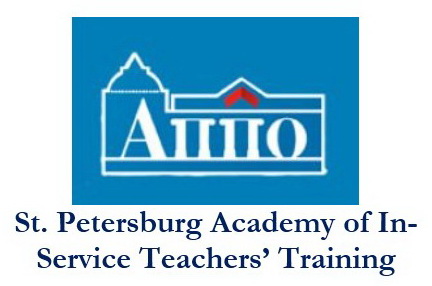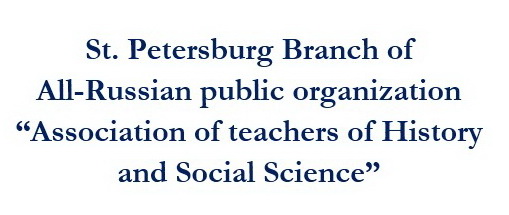
Revolutions in Contemporary History – International Scientific and Practical Conference
October 27, 2017 - October 28, 2017
Even though the Russian Revolution of 1917 is going to be the main focus of the conference, it will also be used as a model for analysis of other revolutionary activities, revolts and protests that took place in Europe throughout the 20th century.
The Russian Revolution of 1917 is considered the first significant revolution in Russian historiography as this revolution brought dramatic changes not only to the peoples of Russia but completely modified the whole world order and determined much of the course of history for the following seventy years. The aftermath of the Russian revolution can still be observed in current domestic, international and global politics, cultures, economies and societies.
We hope to welcome you at the International Scientific and Practical Conference “Revolutions in contemporary history: facts, interpretations and educational strategies”, which promises to be an event full of sharing ideas, methods, techniques and approaches to teaching the Russian revolution and dialogue between European and Russian history educators.
CO-ORGANISED BY


[su_tab title=”Themes”]
[su_list icon=”icon: caret-right”]
- Revolutions now and then. What’s changed? Case study of the revolutions with the example of the Russian Revolution. The digital age of (in)stability: separatist movements, transnational terrorism, political protests and demonstrations.
History educators across Europe teach the Russian Revolution to school students. Obtaining more information about the context, flow and aftermath of the Russian revolution, re-assessment of the legacy and consequences as well as sharing of the methods, techniques, views and attitudes towards the Russian revolution from a shared European and local Russian perspective will enhance the perception of the Russian revolution, enrich and improve the teaching of the topic and offer a fresh perspective on the events that happened 100 years ago. Understanding of the past revolutions will help both the educators and their students to make connections between the past and the presence, critically reflect on the past and assess the contemporary events, such as current protests, demonstrations and revolutions, with proper analytical and rational skills. - Educational strategies in the digital age of information overflow (digital learning, responsible teaching, interactive education)
On the one hand, teaching history is becoming more and more difficult and challenging in the digital age of information overflow, but on the other hand the potential for using ICT in teaching history offers numerous opportunities for improvement. The availability, reachability and accessibility of sources adds to multiperspectivity and plurality in history, however it is important not only to provide sources, but also teach how to work with them and how to distinguish between a trustworthy and an untrustworthy source. Apart from digital learning and responsible teaching, the conference will cover educational strategies to teaching the Russian revolution in a series of workshops that will include teaching history with the help of visualization techniques (cinematography, documentaries, media and re-enactment), animation, computer games as well as the general use of international online sources.
[/su_list]
[/su_tab]
[su_tab title=”Aims and Objectives”]
[su_list icon=”icon: caret-right”]
- To encourage the Europe wide debate on how the Russian revolution influenced both world, European, Russian and other national histories in the course of the 20th and the 21st centuries
- To evaluate what lessons can be learned from the case of the Russian revolution in order to make sense of the past revolutions as well as those that are taking place in the most contemporary history (e.g. Velvet Revolutions in the CIS region and the Arab revolutions in the Middle East)
- To compare and contrast views, perceptions and perspectives on the Russian revolution both in Europe and Russia as well as teaching techniques, approaches and strategies to teaching the Russian Revolution in the 21st century
- To facilitate theoretical knowledge exchange in the field of studies of the revolutions
- to explore the teaching techniques, approaches and attitudes of history educators both from Europe and Russia towards the Russian revolutions as well as its influence on the national histories of Europe by spreading the questionnaire and consequent data analysis
- To develop a common understanding of responsible history teaching in the current world dynamic as a bridge for peace, citizenship, human rights and democracy education
- To strengthen the capacity building and professional development of both European and local Russian educators in a multicultural learning environment
- To foster cooperation and networking between European and Russian history teaching associations and individual history educators
[/su_list]
[/su_tab]
[su_tab title=”Outcomes”]
[su_list icon=”icon: caret-right”]
- Increased participation, dialogue and knowledge transfer in the European community of History Educators
- Improved English-language competence through facilitated and engaged dialogues
- Raised awareness of cultures and identities through reflection on the teaching of history (Russian Revolution) across Europe and Russia
- Access to new partnerships, including schools, local, regional, national and international educational authorities and institutes in Russia
- Recognition of developed competences in history education through lifelong learning in the international context
- Access to innovative history education tools from across Europe with a focus on education for democratic citizenship
- To transform the shared experiences of integrated and cross-border history education in diverse societies into tangible guidelines for educators and policy-makers
- Understanding of the challenges related to dealing with sensitive issues in history
- A conference report for wider dissemination, including educational resources, and academic papers
[/su_list]
[/su_tab]
[su_tab title=”How to register?”]
Registration is now closed
The conference fee is 385 euro per person and will include for the entire duration of the conference:
[su_list icon=”icon: caret-right”]
- Accommodation in a 3-star hotel A-Hotel Fontanka, located in the historical centre of Saint Petersburg on the Fontanka river embankment (single or twin rooms)
- Registration costs
- Transportation
- Cultural programme i.e. museum visits – Museum of Political History and the Hermitage. (The fee for the additional cultural programme on Sunday = 42 euro)
- Lunch, dinner and coffee breaks
- Choice among 6 workshops
- General conference participation
[/su_list]
[/su_tab]
[su_tab title=”Visa Procedures for Participants”]
Participants need to apply for the Russian visa themselves; however, EuroClio will provide the participants with the invitation letter from the receiving side (St. Petersburg Academy of In-service Teachers’ training) so that the participants could apply for the cultural visa.
All the necessary information for the invitation letter is obtained from the registration forms that the participants have already filled in in order to register for the conference. Upon receiving the invitation letter, the participants will need to make an appointment at their local Russian embassy/consulate and apply for the visa for the cultural visit.
[/su_tab]
[/su_tabs]
Details
- Start: October 27, 2017
- End: October 28, 2017
- Event Category: Thematic Seminars
- Event Tags:Revolutions in Contemporary History, Saint Petersburg
